기술사 통합
기술사 통합은 여러 개의 기술사를 통합하여 하나의 새로운 기술사를 취득하는 것을 말한다. 한번쯤은 들어봤을 ‘5대 기술사’라는 단어가 있다. 5대 기술사란 건설기술사, 전기기술사, 기계기술사, 화학기술사, 정보기술사 이렇게 5개의 그룹을 뜻한다.
이제 여러분들은 기술사란 무엇인지 그리고 시험에 통과하여 취득하게 된다면, 더 많은 경쟁력을 얻게 될 수 있다는 것을 알겠으리라 생각된다. 그렇다면, 기술사 통합이란 무엇이며, 어떠한 필요성 및 장단점이 있는지 알아보도록 하자.
기술사 통합이란?
기술사 통합은 기존에 개별로 취득되었던 여러 기술사 자격증을 하나로 통합하여, 종합적인 기술 분야의 전문가 자격증을 취득하는 것을 말한다. 기존의 여러 기술사를 통합함으로써, 업계의 요구사항과 변화하는 환경에 대응하기 위한 종합적인 기술 역량을 확보할 수 있다는 장점이 있다.
기술사 통합의 필요성
최근에는 산업과 학계, 그리고 다양한 분야에서 급격한 변화와 진보가 이루어지고 있다. 이에 따라 전문 석사나 박사학위 등을 취득한 사람들도 진심으로 성장하고 싶다면, 새로운 기술들에 대한 이해와 그것의 선제적인 예측력, 융합적인 사고력이 필수적이라는 말이 있다. 이 같은 요구사항에 대응하기 위해서는, 세 분야에 대한 전문성 및 개발능력을 갖추고 이들이 융합하여 새로운 전략 및 가치 창출의 기회를 찾아내는 것이 더욱 필요하다. 이러한 요구사항을 충족시키기 위해서, 기술사 통합은 매우 필요한 제도이다.
기술사 통합의 장점
기존의 여러 기술사를 통합해서 하나의 기술사로 취득하게 되면, 따로 따로 취득하는 것과 비교하여 여러 가지 장점이 존재한다.
1. 기술적 경쟁력 증대
기존의 기술사 자격증을 통합하여 하나의 새로운 기술사를 취득하면, 각 분야마다 요구되는 기술과 노하우가 강화되고, 전문성 및 기술력이 증대된다. 이는 당연히 업계에서 인정받는 높은 기술 경쟁력을 갖는 기술자로 성장할 수 있게 도와준다.
2. 새로운 분야 진출 기회 증대
각 분야마다 구체적인 기술서적 도서관과 같은 무수한 문헌이 존재한다. 이를 통해 기본적인 기술을 공부할 수 있지만, 여러 분야 간 융합이나 경험을 쌓기 위해선 마땅한 곳이 없다. 기술사 통합을 통해 새롭게 접근할 수 있는 분야가 생기며, 이를 통한 새로운 기술 진출기회를 얻을 수 있다.
3. 종합적인 전문성 강화 및 미래 인재로서의 가치 증대
개별 기술사를 통합한 기술사 취득을 통해, 기존의 분야에서 뿐 아니라 다양한 새로운 분야에서도 전문성을 확보할 수 있어 미래 인재로서 인정받게 된다.
기술사 통합의 단점
기술사 통합은 어느 정도 장점이 있지만, 다독해야 할 부분도 있다.
1. 시간과 노력이 크게 들어가는 문제
기존에 개별적으로 취득해야 하는 것과 달리, 여러 기술사를 통합하는 과정은 어느 때보다 그 시간과 노력이 크다.
2. 교육과 학습비용 증가 문제
기존에는 각 분야마다 따로따로 취득하면 되는 것과 다르게, 여러 기술사를 통합하는 과정에서는 보다 폭넓은 지식과 정보를 습득해야 하기 때문에 교육과 학습비용은 높아진다.
3. 기술분야의 전문성을 잃을 가능성
기존의 기술사를 하나로 통합하는 과정에서, 각각 분야의 전문성을 잃을 가능성이 있다.
기술사 통합을 위한 기술은 무엇인가?
기술사 통합을 통한 새로운 기술 진출 및 경쟁력 확보를 위해서는, 다양한 기술을 융합적으로 접목하고 이를 데이터화하므로써 시장에서 유의미하고 성과 높은 가치 창출이 가능하다. 따라서 데이터 구축과 분석, 인공지능, 머신러닝, IoT, 블록체인 등 정보기술, 로봇공학, 신소재 등 상호 융합적인 학문들이 중요한 역할을 담당한다.이를 위하여 MS, 경영자, 엔지니어, 인포매틱스 등에서 기술사 통합을 지원하기 위한 프로그램들이 제공되고 있다.
기술사 통합의 구체적인 사례는 어떤 것이 있는가?
기술사 통합의 구체적인 사례는 기존에 컴퓨터 공학, 정보 기술, 그리고 전자공학과 같은 분야에서 이미 이루어지고 있으며, IoT와 AI 분야에서는 더욱 활발한 통합이 이루어지고 있다. 이러한 분야에서 기존의 기술사를 통합하면, 복수분야의 전문지식을 활용하여 더욱 놀라운 결과를 창출할 수 있다. 또한, 비즈니스 모델, 프로덕트 및 서비스 디자인, 마케팅 전략 등을 통합하면, 미래 혁신에 대한 부각 노하우를 갖추게 된다.
기술사 통합을 위한 조직문화의 변화는 무엇인가?
기술사 통합을 위해서는 조직문화적인 변화가 필수적이다. 여러 분야마다 전문성이 다른데, 이를 통합하기 위해서는 구성원들 간의 역할 및 업무분장, 새로운 지식의 공유 및 통합화, 그리고 신속한 협업 등을 비롯한 조직문화 변화에 많은 노력이 필요하다.
기술사 통합의 성공적인 방법은 무엇인가?
기술사 통합을 위해서는 새로운 조직문화를 구축하는 것은 물론, 각 분야의 전문가들과 협업하는 것이 중요하다. 그리고 개별 분야에 대한 이해와 필요한 지식을 공유하는 것이 스무스한 진행을 가능하게 만든다. 또한 기술사 통합 자격증 획득에 필요한 사항들을 체계적으로 파악하여 구체적인 목표와 계획을 세우는 것이 중요하다.
기술사 통합의 미래 전망은 어떤 것인가?
지속적인 혁신으로 언제나 변화하는 기술사 통합의 미래는 매우 밝다고 볼 수 있다. 산업 및 사회의 요구사항이 계속해서 변화함에 따라 전문 지식이 필요한 분야마다 새로운 통합 가치가 창출될 가능성이 높아지고 있다. 특히 IoT와 AI 분야에서는 새로운 전문성을 갖춘 기술자가 필요해지고 있어, 상호 융합을 통한 기술사 통합이 더욱 필요해질 전망이다.
FAQs
Q1. 기술사란 무엇인가?
A1. 기술사는 한국의 기술자격제도에서 기술분야의 종사자들이 취득하는 라이센스 중 하나이다.
Q2. 5대 기술사는 무엇인가?
A2. 5대 기술사는 건설기술사, 전기기술사, 기계기술사, 화학기술사, 정보기술사 이렇게 5개의 그룹을 뜻한다.
Q3. 기술사 합격률은 어떻게 되는가?
A3. 기술사 합격률은 전체 시험자 대비 10% 내외 수준으로 매우 낮다.
Q4. 정보관리기술사와 기술사 통합은 무엇인가?
A4. 정보관리기술사는 데이터베이스, 네트워크관리, 정보보호 등 정보관리 분야를 전문적으로 습득한 사람들이 취득하는 라이센스이다. 기술사 통합은 각 분야마다 취득한 여러 기술사를 하나로 통합하여 종합적인 기술 분야의 전문가 자격증을 취득하는 것을 말한다. 이 둘은 서로 다른 분야에서 구분되는 자격증이라고 볼 수 있다.
사용자가 검색한 키워드: 기술사 통합 5대 기술사, 기술사 합격률, 정보관리기술사
Categories: Top 35 기술사 통합
유사한 기술사 종목들은 통폐합 될까?
여기에서 자세히 보기: future-user.com
5대 기술사
History of South Korea’s Technological Advancement
South Korea was a war-torn country during the early 1950s. It was one of the poorest countries in the world, but it had a hunger and an eagerness to succeed that propelled it to success. The government of South Korea recognized the importance of technology and innovation in its development and placed priority in its investment. The government’s investment in industries such as steel, shipbuilding, and chemicals laid the groundwork for South Korea to become one of the world’s leading manufacturing and export-oriented economies.
In the 1970s and 1980s, South Korea’s focus shifted to innovation and research and development in the high-tech sector. This led to the rise of South Korea’s semiconductor industry, which is now one of the largest and most successful in the world. South Korea has been the world’s largest producer of memory chips since 1993, and it is also the largest production center for semiconductors worldwide. The country’s electronics giants such as Samsung, LG, and SK Hynix have played a pivotal role in driving South Korea’s economic growth and have helped convert South Korea into a technological powerhouse.
South Korea’s technological and industrial advancements can be attributed to strong government support, private investment, and the effective use of its human capital. South Korea also has a highly educated population that has contributed significantly to the development of its technology sector. The country has one of the highest rates of higher education in the world, and its workforce is endowed with a high level of technical and technological skills. South Korea also has a culture of innovation, with its companies constantly investing in research and development to produce new and innovative products.
Five Areas of Technological Advancement in South Korea
Information and Communication Technology (ICT)
South Korea is a global leader in ICT and has built a digital powerhouse that is unrivaled in the world. South Korea’s internet connectivity is world-class, with the country boasting the fastest broadband speeds in the world. In 2020, South Korea had an average internet download speed of 113 Mbps, which is six times faster than the global average.
South Korea is home to the world’s largest 5G network, which it launched in 2019. South Korea’s 5G network is essential for the development of the Internet of Things (IoT), autonomous vehicles, smart cities, and Industry 4.0. South Korea’s 5G network has been instrumental in the country’s technological advancements.
Semiconductor
South Korea’s semiconductor industry is the driving force behind its technological success. South Korea’s largest exports are semiconductors, which account for 20% of the country’s total exports. South Korea is home to two of the world’s largest semiconductor companies, Samsung and SK Hynix.
Samsung is the world’s largest producer of memory chips and is known for producing cutting-edge products. SK Hynix is the world’s second-largest memory chip producer and is a close rival of Samsung.
Artificial Intelligence (AI)
South Korea’s prowess in AI is rapidly growing. The government’s investment in AI research and development and the country’s strong foundation in ICT has propelled South Korea to great heights in AI development. South Korea has developed an AI-based cancer treatment system, robots that can conduct remote exams, and an AI-powered car diagnostic system that can identify defects in a car before they become major issues.
The South Korean government is also investing heavily in the development of AI-powered services and systems that can increase efficiency and productivity. South Korea’s homegrown virtual assistant, called “Klova,” is predicted to be the next big thing in the virtual assistant technology space.
Biotechnology
The South Korean government has been investing in the development of biotechnology for over two decades. South Korea’s biotechnology sector is growing rapidly, with many new startups cropping up. South Korea’s biotechnology companies are innovating in areas such as gene therapy and regenerative medicine.
South Korean researchers developed a blood-based cancer diagnostic kit, which is the first of its kind in the world. The South Korean company Celltrion developed a COVID-19 antibody test kit that has been approved for use in the United States and Europe. South Korea is also leading in the development of a vaccine for COVID-19.
Robotics
South Korea has been at the forefront of robotics research, development, and manufacturing. South Korean robotics companies are leading the charge in developing robots for various sectors, including healthcare, manufacturing, and logistics.
The South Korean company, Hanwa Robotics, has developed a robot named Hanbit that can assist with cleaning and disinfecting hospital rooms. Another South Korean company, LG Electronics, has developed a robot that can interact with humans and perform a variety of tasks such as cleaning, carrying goods, and providing directions. These advancements have allowed South Korea to become a leader in the robotics space.
FAQs
Q1. How has South Korea’s technology advancements affected the world?
South Korea’s technological advancements have played a pivotal role in the world’s technological advancements. South Korean companies have provided the world with cutting-edge products in various sectors, including semiconductor, electronics, and robotics. South Korea’s strong focus on research and development and its highly skilled workforce have allowed it to become a technology powerhouse that has inspired other countries to follow in its footsteps.
Q2. What is the future of South Korea’s technology advancements?
The future of South Korea’s technology advancements looks bright. The South Korean government is investing heavily in research and development in the sectors of AI, biotechnology, and robotics. South Korean companies are also investing in new technology and innovation to stay ahead in the fast-paced technological world.
Q3. What challenges has South Korea’s technology industry faced?
The South Korean technology industry faces challenges, such as intense competition from other countries and changing global market trends. South Korean companies also need to focus on sustaining their competitive edge by investing in research and development and nurturing young talents to lead the way in the technology industry.
Conclusion
South Korea’s technological progress has been remarkable. South Korea’s government’s investment and private sector’s innovation and commitment have made South Korea one of the most successful and innovative countries in the world. South Korea’s advancements in ICT, semiconductor, AI, biotechnology, and robotics have brought positive impacts globally. South Korea is an example of how a country can grow significantly by investing in innovation, research, and development. South Korea’s position as one of the Five Great Technological Powers is well-deserved and is expected to continue its trajectory in the future.
기술사 합격률
The technical qualification examination is a rigorous, multi-step process that includes both a written exam and a practical exam. Candidates must demonstrate their ability to apply theoretical knowledge in practical settings as well as their ability to use modern technologies and tools relevant to their field. The exam is used to evaluate the competence of the candidate to execute their professional responsibilities and to ensure that they meet the national standards for technical competency.
The exam is offered in numerous specializations that include mechanical, electrical, architectural, civil, chemical, environmental, marine, and many others. Each specialization has its own syllabus, and the exam consists of multiple-choice questions and practical assignments. The exam content is regularly updated to reflect advancements in the field as well as new technologies and tools.
The technical qualification examination pass rate varies by specialization, but on average, it takes a candidate about three attempts to pass the exam in their chosen field. The overall pass rate for the technical qualification examination in Korea is approximately 40%, which means that only about 4 out of 10 candidates pass the exam on their first attempt. However, the pass rate increases with each subsequent attempt, with approximately 70% of candidates passing by their third attempt.
The pass rate is influenced by numerous factors, including the level of training, academic qualifications, and practical experience of the candidate. Candidates with higher levels of education and experience often have an advantage over those with lesser qualifications, as they are better equipped to understand the material and apply it in their practical assignments.
Another factor that influences the pass rate is the quality and relevance of the preparatory courses and materials available to candidates. Candidates who have access to high-quality training materials and practice exams often do significantly better than those who do not have such access. Additionally, candidates who enroll in specialized training programs that are designed to help prepare for the technical qualification exam often have a better chance of passing the exam on their first attempt.
Frequently Asked Questions (FAQs)
Q: What is the technical qualification exam in Korea?
A: The technical qualification exam is an exam that measures the technical knowledge and practical skills of potential practitioners in specific fields. The exam is used to evaluate the professional competence of the candidate to execute their duties and to ensure that they meet the national standards for technical competency.
Q: How is the technical qualification exam administered?
A: The technical qualification exam is administered by the Ministry of Employment and Labor in Korea. It is a multi-step process that includes both a written exam and a practical exam. The exam is offered in numerous specializations that include mechanical, electrical, architectural, civil, chemical, environmental, marine, and many others.
Q: What is the pass rate for the technical qualification exam in Korea?
A: The pass rate for the technical qualification exam varies by specialization but on average, it takes a candidate about three attempts to pass the exam in their chosen field. The overall pass rate for the technical qualification examination in Korea is approximately 40%, which means that only about 4 out of 10 candidates pass the exam on their first attempt.
Q: How can I increase my chances of passing the technical qualification exam?
A: The pass rate for the technical qualification exam is influenced by numerous factors, including the level of training, academic qualifications, and practical experience of the candidate. Candidates who have higher levels of education and experience often have an advantage over those with lesser qualifications. Additionally, candidates who enroll in specialized training programs that are designed to help prepare for the technical qualification exam often have a better chance of passing the exam on their first attempt.
Q: Are there study materials available to help prepare for the technical qualification exam?
A: Yes, there are numerous study materials available to help prepare for the technical qualification exam in Korea. The Ministry of Employment and Labor provides a range of training courses and materials to help candidates prepare for the exam. Additionally, there are numerous private training organizations that offer specialized training programs and study materials to candidates.
In conclusion, the technical qualification examination is an important exam for individuals seeking technical certification and professional recognition in Korea. The exam is used to evaluate the competence of the candidate to execute their professional responsibilities and to ensure that they meet the national standards for technical competency. While the pass rate for the exam is relatively low, candidates who have higher levels of education and experience and who enroll in specialized training programs often have a better chance of passing the exam on their first attempt. With proper preparation and diligent study, candidates can achieve success in the technical qualification examination and further their careers in their chosen field.
주제와 관련된 이미지 기술사 통합

기술사 통합 주제와 관련된 이미지 19개를 찾았습니다.
![기술사 세부종목, 84개→20개 이내로 개편-자격증보다 경력실적 우대[ 최고 자격' 아닌 '진입 자격'으로 검정 방식 개편] : 네이버 블로그 기술사 세부종목, 84개→20개 이내로 개편-자격증보다 경력실적 우대[ 최고 자격' 아닌 '진입 자격'으로 검정 방식 개편] : 네이버 블로그](https://mblogthumb-phinf.pstatic.net/MjAxOTEyMjlfNjgg/MDAxNTc3NTg4MTkwMDU0.tqs_89OsMEzurk9MKlncmRB4JYaqS6V-dr9IM1ZEcYcg.YbVcuPykClR3U1afy-vDg0shmRR_B_HPJxIWjC2eov8g.PNG.jnho99/C5_84.png?type=w800)
![기술사 세부종목, 84개→20개 이내로 개편-자격증보다 경력실적 우대[ 최고 자격' 아닌 '진입 자격'으로 검정 방식 개편] : 네이버 블로그 기술사 세부종목, 84개→20개 이내로 개편-자격증보다 경력실적 우대[ 최고 자격' 아닌 '진입 자격'으로 검정 방식 개편] : 네이버 블로그](https://mblogthumb-phinf.pstatic.net/MjAxOTEyMjlfMTcy/MDAxNTc3NTg4MjM1Mjcy.mWIZXnhRy3qglhJOk_4UNvnMF4ETJxn_psxr6lh6y4gg._WUKX1dm3Stk6Dmg2C2UJGwV5xtyrv3jLeMVTXhE-Owg.JPEG.jnho99/%EC%A0%84%EC%97%B4%EA%B5%90%ED%99%98%EA%B8%B02.jpg?type=w800)
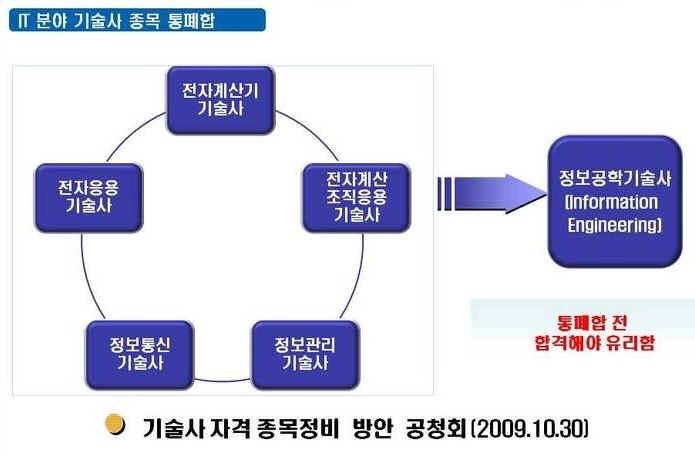



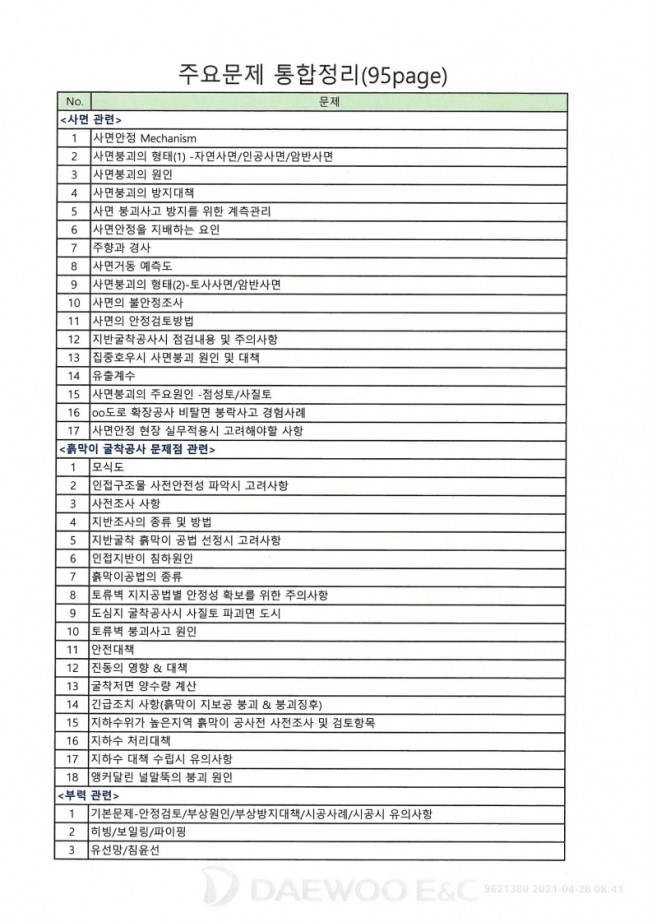
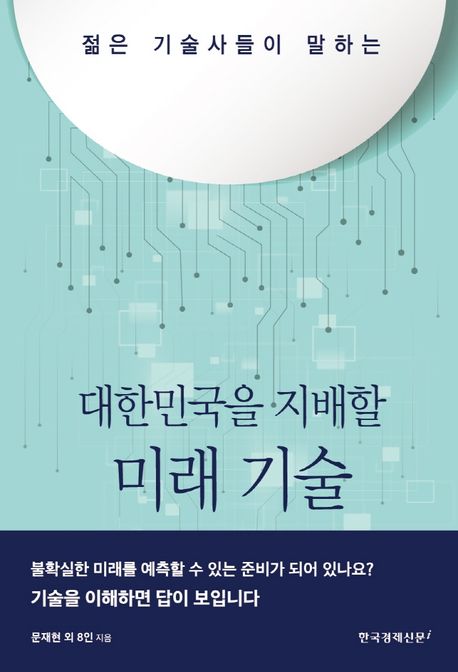
![모의] 122회 토목시공기술사 모의고사 4 모의] 122회 토목시공기술사 모의고사 4](https://blog.kakaocdn.net/dn/oSxds/btqEZaQJPaM/JW5iJP7OE6GlEMYjRCkpVK/img.jpg)
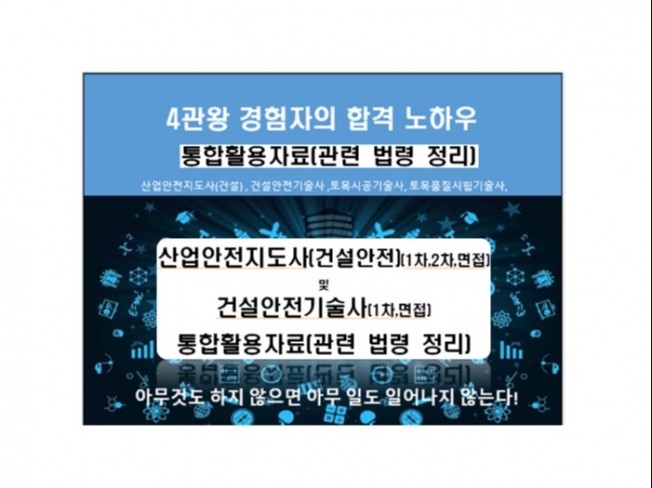

![부산영어번역공증] 국가기술자격 경력증명 영문번역 : 네이버 블로그 부산영어번역공증] 국가기술자격 경력증명 영문번역 : 네이버 블로그](https://mblogthumb-phinf.pstatic.net/20150810_277/aparoh_1439179267296UvsTe_JPEG/%B0%F8%B9%AE_005.jpg?type=w420)
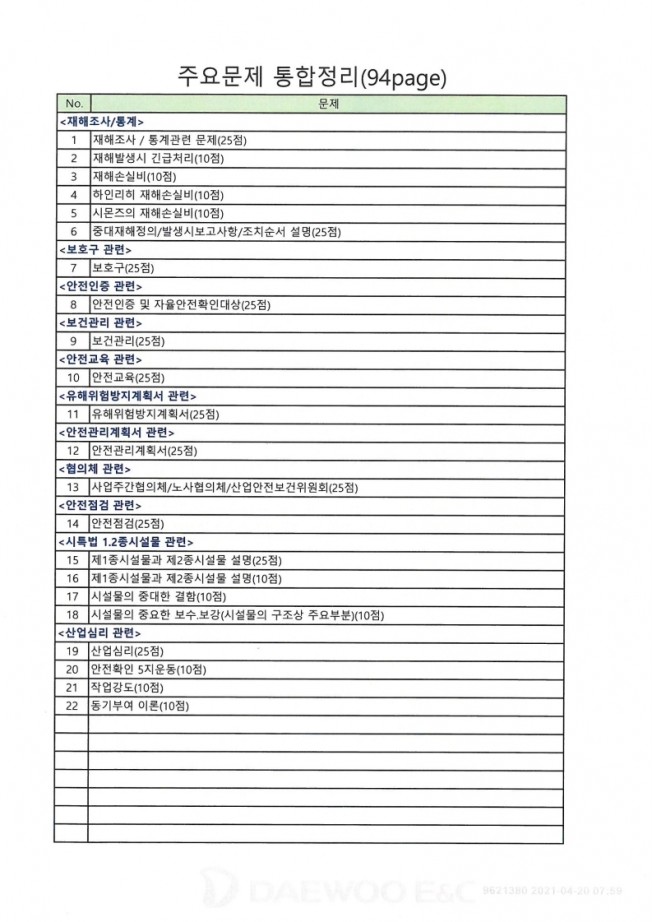
![토목시공기술사] 전산통합관리 (CIC, PMIS, CALS) - YouTube 토목시공기술사] 전산통합관리 (Cic, Pmis, Cals) - Youtube](https://i.ytimg.com/vi/ljm6AvFNCz4/maxresdefault.jpg)
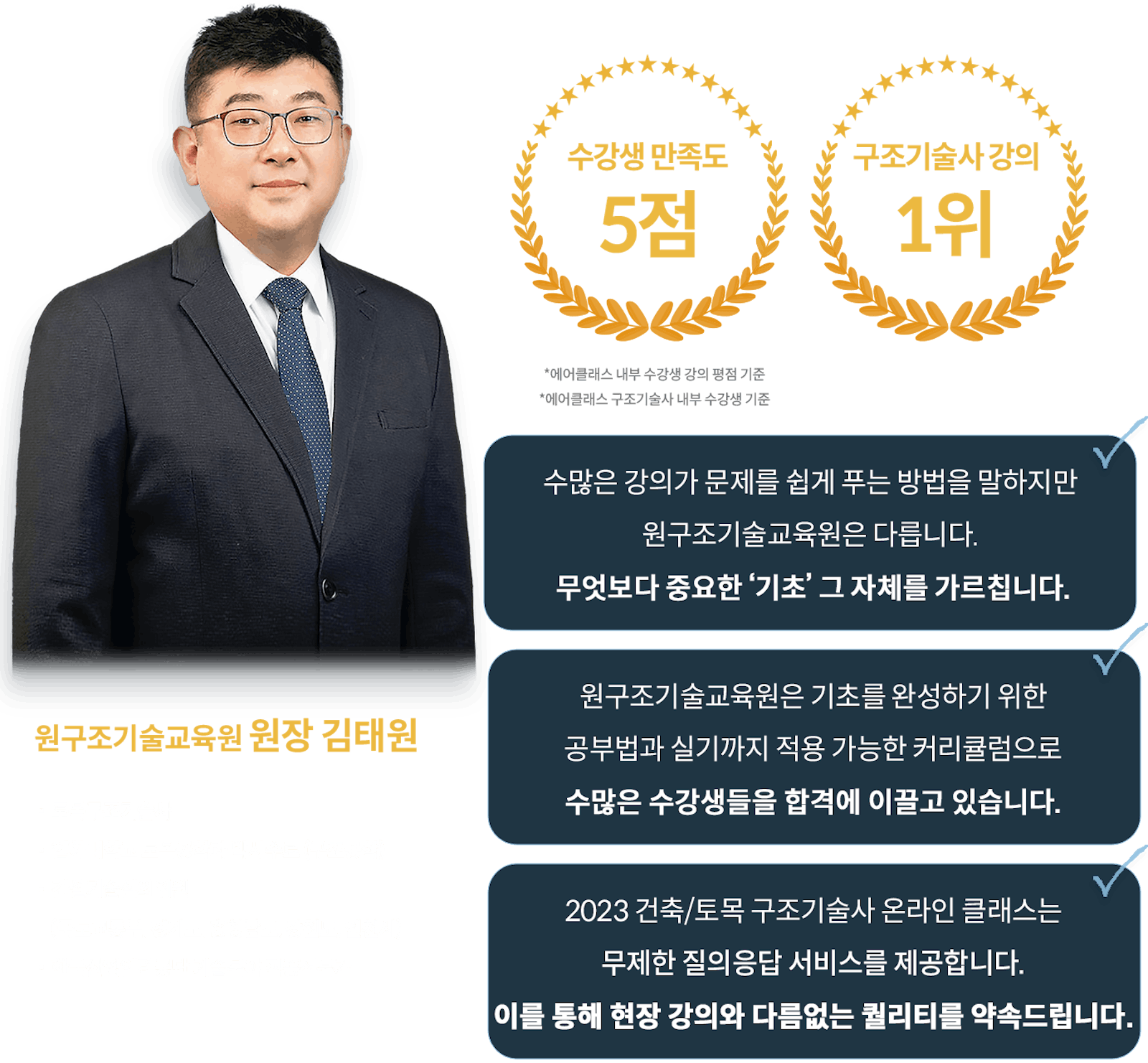






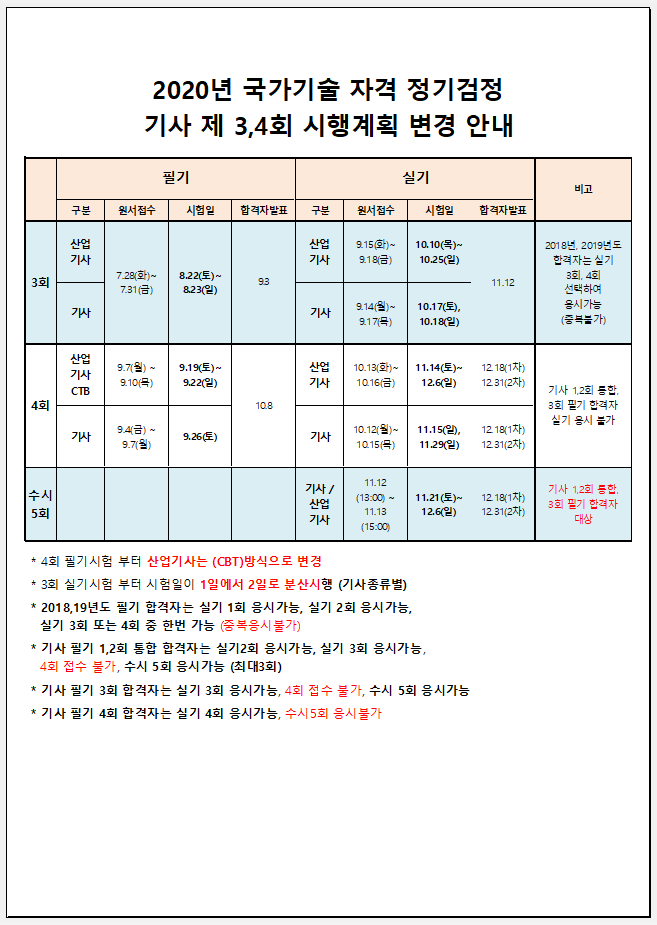



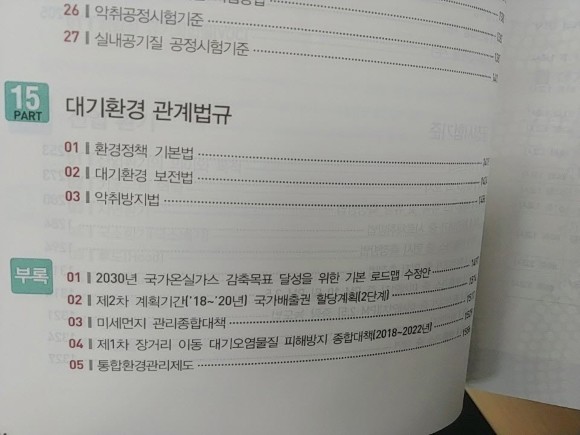
![건설취업 모바일건설워커] (주)한라 / 건축 계약직 채용 공고(물류창고) / 마감일 : 06/17 건설취업 모바일건설워커] (주)한라 / 건축 계약직 채용 공고(물류창고) / 마감일 : 06/17](https://www.worker.co.kr/image/220610_halla2.gif)
Article link: 기술사 통합.
주제에 대해 자세히 알아보기 기술사 통합.
- 기술사 제도개선 – 한국기술사회
- 토목ㆍ건축구조→구조공학기술자… 국가 기술사 통폐합 이뤄질까
- 기술사 세부종목, 84개→20개 이내로 개편-자격증보다 경력실적 …
- 제4차 기술사 제도발전 기본계획(안)
- 재정강화, 면허 등 산적한 문제를 해결할 절호의 기회입니다.
- 블라블라: 기술사 과목 통폐합 실화? – Blind
- 기술사 시험일정 | Q-net – 큐넷
- 제 5차 기술사 제도발전 기본계획 – 백곰술사의 IT Insight
- 기술사 자격 종목정비 방안
더보기: future-user.com/wki